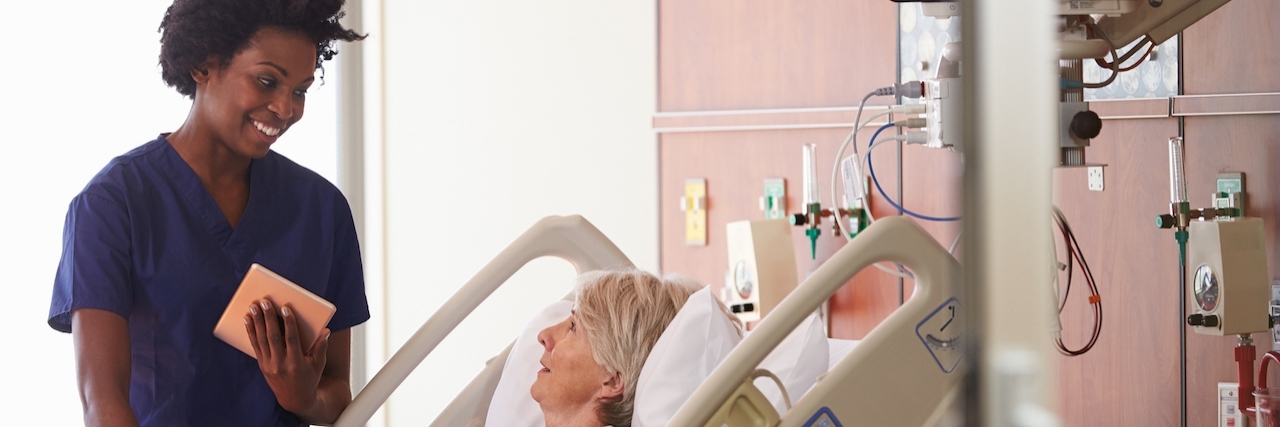At 2 years old, I was diagnosed with Ehlers-Danlos syndrome (EDS) in Boston, Massachusetts. Having it identified at such a young age is extremely rare, even in our current time with such great healthcare and research. While it may have been great to know what we were dealing with, it was still difficult to have a condition which was misunderstood, and not well researched. Growing up, I never knew a soul that had the condition and the severity of it wasn’t truly understood by me, my family or even my doctors until I hit puberty.
• What is Ehlers-Danlos Syndrome?
• What Are Common Ehlers-Danlos Syndrome Symptoms?
I had spent time in hospital settings having tests, being checked out for this symptom or that symptom. Injuring myself in gym class and gymnastics, or playing with friends was commonplace. I was the daughter of a nurse practitioner and my extended family grew to contain seven other nurses over time. All of this exposure to the medical field encouraged me to seek the career path myself as I applied to colleges.
In 2007 I graduated with my Bachelor’s in the Science of Nursing and passed my boards with my RN. I worked in the hospital setting during school, but as I got older and responsibilities became greater, my body could no longer handle bedside nursing. I learned so much from my family and in nursing school, but I feel there is truly a blinding system that leads you to think hospital nursing is the be all and end all of the career. I struggled with what to do next, but found my niche eventually.
I entered the incredible world of outpatient nursing care in 2008 and have loved it ever since. For nearly a decade I have worked with uninsured and underinsured populations in primary care medicine in community health settings. Education is a major focus of my job and preventing chronic illnesses or the complications of said illnesses is priority.
What might any of this have to do with having EDS, you may wonder? I firmly believe a person cannot truly understand what it is like to live with a chronic illness unless they have one themselves. It is difficult to develop a relationship with a patient and discuss their diabetes or heart disease and try to tell them how to best manage their disease, when you can’t truly understand the isolating nature of chronic illness. When I tell a patient I understand what they are going through, I actually mean it.
I can explain what it is like to have an MRI, a CT scan and an X-ray. I’m no stranger to an ultrasound and can explain that process as well. Much of my knowledge I share with patients comes from my own experiences as a patient, and not from books or nursing school.
Relating to patients on a level others cannot creates a strong bridge of communication and trust.
Most importantly, I feel our patients who suffer with chronic pain conditions are able to have someone to talk to at our office that won’t make them feel judged or looked down upon. In this time where Massachusetts is passing new laws to fight an opioid crisis and patients are overdosing on prescribed medications and street drugs, providers are now becoming extremely hesitant to prescribe medications that can be lifelines for patients suffering with chronic pain conditions. While I can see the providers’ side of this issue, I also see it from the patients’ perspectives a bit clearer than others I work with. I hope that they feel when they talk with me they aren’t being treated as a “junkie” or any of the other negative terms associated with the use of these medications nowadays.
Having EDS has not made my life or career choice easy. It has however, made it more worthwhile for me, and made me stronger in what I do. And I hold onto that silver lining every day.

